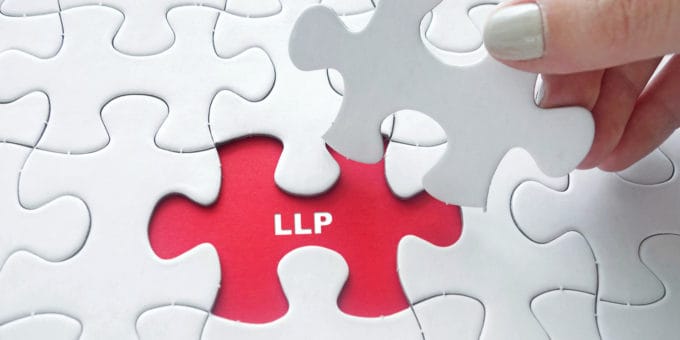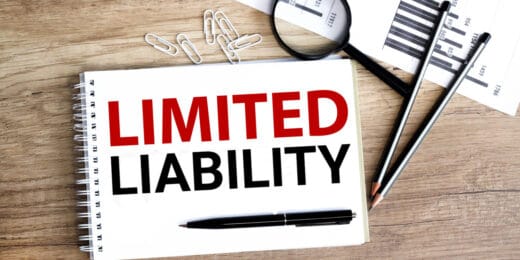Limited liability partnerships (LLPs) have a number of statutory filing and reporting requirements for Companies House and HMRC, many of which are similar to those required of limited companies. Below, we take you through all of the LLP filing and reporting obligations you will need to fulfil.
Key takeaways
- LLP members must file annual confirmation statements and accounts to maintain compliance with Companies House and HMRC.
- Designated members are responsible for updating LLP details and statutory registers within 14 days of any changes.
- Each LLP member must register for Self Assessment and manage their own tax liabilities based on individual profits.
LLP filing and reporting – the headlines
- An annual confirmation statement and annual accounts must be filed at Companies House every year.
- LLP members are responsible for preparing and filing Self Assessment tax returns for HMRC and paying their own tax liabilities for their individual share of profits.
- Any changes to the registered details of an LLP or its members must be reported to Companies House to ensure the public record displays the correct details.
- Designated LLP members are responsible for keeping and maintaining an LLP’s statutory registers at its registered office or SAIL address, including a PSC register.
- LLPs and their members must also keep accounting records for all income, expenditure, assets and liabilities to be able to prepare annual accounts, a Partnership Tax Return, and their individual Self Assessment tax returns.
1. Annual confirmation statement
Designated LLP members must prepare and deliver a confirmation statement to Companies House at least once every 12 months. The filing deadline is 14 days after the anniversary of incorporation or the confirmation date of the previous return.
The purpose of the confirmation statement is to provide an overview of the LLP’s key internal structure on a specific date, known as the ‘confirmation date’. To do so, the following details must be checked and confirmed on form LL CS01:
- LLP name and registered number
- registered office address
- SAIL address (if applicable)
- LLP members’ details
- which of those members are ‘designated’
- information held on the register of people with significant control (PSC register)
- the LLP’s registered email address
The confirmation statement cannot be used to update LLP details, with the exception of PSC information. Any other changes that take place during the year must be reported to Companies House on the relevant forms, either before or at the same time as delivering the statement.
You can file a statement online via Companies House WebFiling. A standard £34 processing fee is payable to Companies House. Alternatively, you can file a paper statement by post, but it will take longer and it costs £62.
2. Annual accounts
LLPs must prepare annual accounts for each financial year. A copy of these accounts should be given to every member and filed at Companies House. Small LLPs are permitted to file an abbreviated version of the accounts with Companies House, and dormant LLPs can file dormant accounts.
To qualify as a small LLP, at least two of the following three conditions must be met:
- annual turnover of no more than £15 million
- balance sheet total of no more than £7 million
- average number of employees does not exceed 50
Designated members are responsible for filing an LLP’s first accounts with Companies House within 21 months of the date of incorporation (if the accounts cover a period in excess of 12 months) or within 9 months of the accounting reference date (ARD). The deadline is calculated to the exact day, rather than the end of the month the accounts are due.
3. Reporting changes to Companies House and HMRC
Any changes to the registered details of an LLP or its members must be reported to Companies House on the relevant form, for example:
- Appointment of a new member – Form LLAP01 (natural member) Form LLAP02 (corporate member)
- Change of members’ details – Form LLCH01 or LLCH02
- Termination of a member’s appointment – Form LLTM01
- Change of registered office – Form LLAD01
- Use of change of SAIL address – Form LLAD02
- Moving statutory records from the registered office to a SAIL address – Form LLAD03
- Change of accounting reference date – Form LLAA01
- Change of LLP name – Form LLNM01
Designated members are responsible for notifying Companies House by completing and filing the relevant form within 14 days of the change. These forms can be filed online via WebFiling or Rapid Formations’ Client Admin Portal, or they can be delivered by post,
Designated LLP members must notify HMRC if there are any changes to:
- the name or trading address of the LLP
- PAYE-related details
- personal details of members for Self Assessment purposes
- business bank account details for the partnership
Additionally, if the LLP is registered for VAT, HMRC must be notified when any partner joins, leaves, passes away, or becomes bankrupt.
4. Self Assessment for LLP members
LLP members are taxed on their individual profits through Self Assessment. Every member is responsible for registering for Self Assessment with HMRC, preparing and filing tax returns, and paying Income Tax and National Insurance contributions (NICs) on their annual income.
It is relatively quick and easy to register online for Self Assessment. Income Tax and Class 4 NICs must be paid through Self Assessment, either periodically throughout the year or at the end of each tax year when the corresponding tax return is filed.
Class 4 National Insurance (2025/26 rates)
Class 4 NICs are charged at 6% on annual personal income between £12,570 (Lower Profits Limit) and £50,270 (Upper Profits Limit). Profits greater than £50,270 are liable to 2% Class 4 NICs.
If your accounting records and tax returns are particularly complex, you should consider hiring an accountant or tax advisor to complete and file your Self Assessment return and work out how much tax and NI you owe.
Our blog post What’s changing in the 2025-26 tax year? provides more information on tax rates and other key measures that may impact you and your business throughout the year.
5. Keeping business and accounting records
LLPs are legally required to keep and maintain business and accounting records at a registered office or SAIL address. Details of members must be kept up to date in a register of members and a register of members’ residential addresses.
Where applicable, a register of debentures and a register of charges must also be kept. With the exception of the register of members’ residential addresses, these statutory records must be made available for public inspection.
LLPs must also keep accounting records. These will be used to prepare LLP accounts, Partnership Tax Returns, and Self Assessment tax returns. Accounting records should contain details of all income and expenditure, assets and liabilities, statements of stock, and a statement of all goods and services bought and sold.
All of these records (other than members’ personal tax returns) should be kept at the registered office or SAIL address for at least 3 years and be open to inspection by LLP members.










Join The Discussion